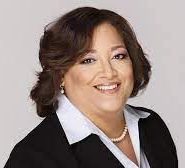
Trust is Essential for Democratic (Virtual) Classrooms In Uncertain Times
Democracy is the principle of governance marked by every person’s fair and equal treatment. In democratic societies, everyone has the same unfettered access to public goods and shares fairly in public life. Trust undergirds and upholds systems of democracy and these systems disintegrate when the people no longer trust. Importantly, this dependent relationship between democracy and trust exists in the public square and in the seminary classroom.
Before I reflect upon democracy and trust in the classroom, I must share a bit about myself. I come to the work of religious and theological education from a career in corporate marketing. My understanding of the teaching and learning experience stems from my years in consumer brand management, during which I developed “muscle memory” in identifying a need, determining how my product uniquely meets that need, and presenting my product in ways that encourage a particular action (usually a purchase). During my time at corporations like the Ford Motor Company, Nabisco, the Fort Howard Paper Company, and The Coca-Cola Company, I was rewarded for my ability to assess my product’s performance knowing market conditions change. As it was with automobiles, cookies, facial tissue, and carbonated beverages, so it is with religious education.
As a seminary professor with an eye towards democracy in the classroom, I recognize that classroom environments have shifted in ways that make trust an even more critical part of my pedagogical offerings. Trust must undergird democracy in my classrooms. In what follows, I share my thoughts on some of the actions I take to help build democracy through trust in my classrooms.
Trust in the Virtual Classroom
This year my fall semester students operated with a heightened sense of anxiety; more of them fixated on the smallest details of the syllabus and their performance. At first, I thought this was a life-stage function as we had many students who matriculated directly from their undergraduate experience. Upon further reflection, I determined that life stage was not the primary driver of this anxious student behavior. This group of students began their seminary journey with no in-person learning; they were 100% online. The lack of in-person interactions brought on by COVID-19 safety protocols (let alone being unable to see or encounter professors or each other outside of the classroom) contributed to students’ anxiety and distrust.
I am a Biblical studies professor, currently teaching introductory courses and specialized electives. Students in my introductory class—which is required for the MDiv degree—began online instead of in person. Many of these students applied and were accepted to seminary before the COVID-19 pandemic and had no intention of attending seminary online. My fall 2020 students were all new to the seminary, and I was one of their first seminary professors. Most were new to online learning and they were different when it came to trust in my course. Their levels of trust were lower, and their levels of anxiety were higher than my former students’, who met in-person in traditional formats. Over the Christmas break, I was intentional about modifying my syllabus and reassessing some of my pedagogical practices to account for issues of student trust and anxiety.
Consistency is critical when creating trust, allaying anxiety, and nurturing democracy in the classroom. Small details are essential in matters of classroom trust; therefore, I was careful to make sure the templates I used for lecture-discussion looked alike. While it is easier to repurpose material from other presentations, I converted presentation slides, so they matched visually. The title slide from my early “Ancient Near Eastern Context of the Hebrew Bible” presentation looks exactly like the title slide for my latter “Wisdom Literature” presentation. Something is comforting about seeing patterns. I imagined my students thinking, “I recognize this. Dr. Russaw has projected a slide that resonates with last week’s information presentation. This experience is not something new I have to manage in my day. I can relax and learn.”
Secondly, I structured class sessions in the same way each week. Each session began with a centering moment and ended with “good words” of encouragement. My teaching assistant took responsibility for each week’s centering moment, and arranging for volunteers for the closing words. These consistent rituals did a couple of things. Students knew the centering moment signaled the official start of class. It was not uncommon to hear deep sighs at the end of the centering moment. It was as if students were saying, “Okay. I am in a (virtual) space where I feel comfortable. I can relax a bit and lean into the next couple of hours of learning.” Giving students a way to participate through volunteering to offer closing words helped build democracy because all students had an equal opportunity to participate, or not.
We all, professors and students, live in a time of great uncertainty, and that uncertainty makes for anxiousness and distrust in the classroom. I hope that by attending to small actions we can take in our classrooms, our students will learn to trust and will be able to flourish in their learning.
I hope during these times, school leaders should provide clarity and direction, and build resilience, and instilled hope as they remained focused on the best possible outcomes for their students and school communities. It’s a win-win situation for all of us.
The dynamic nature of the pandemic not to mention everything from vaccine misinformation to highly politicized debates around school reopenings can make for a lot of confusion for everyone, especially kids.
Absolutely! A democratic school, as the term is used on this site, is a school where students are trusted to take responsibility for their own lives and learning, and for the school community.
A brilliant write-up! Thanks for offering such clarity on the subject.